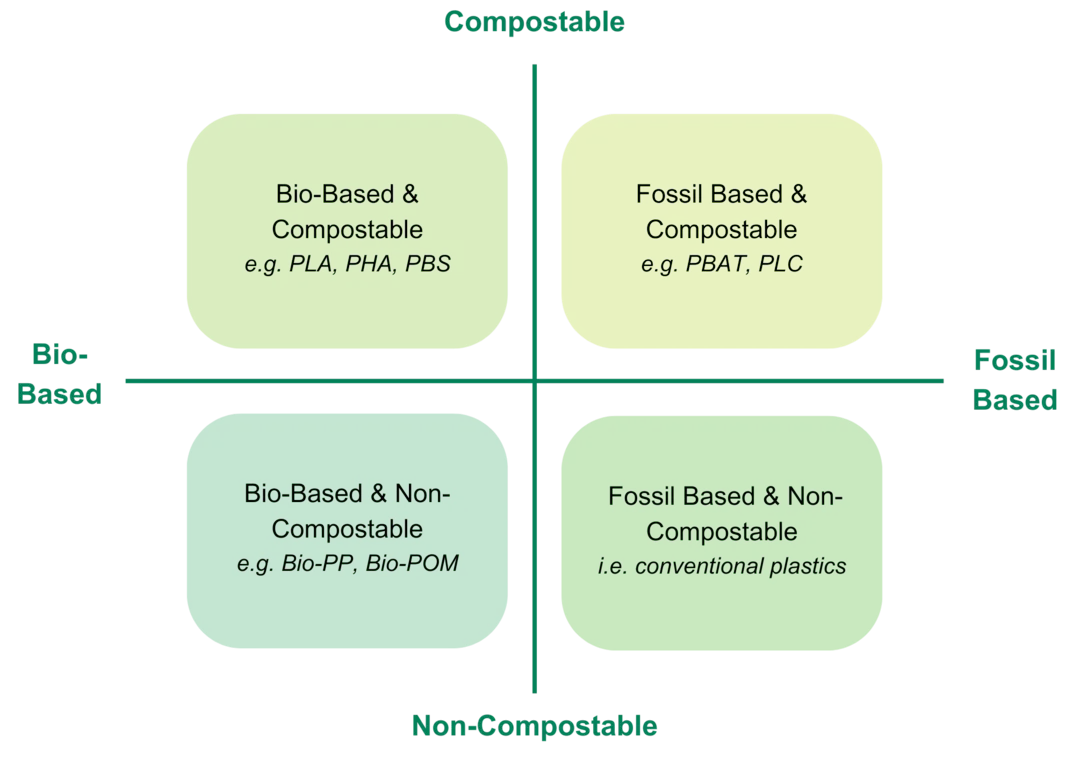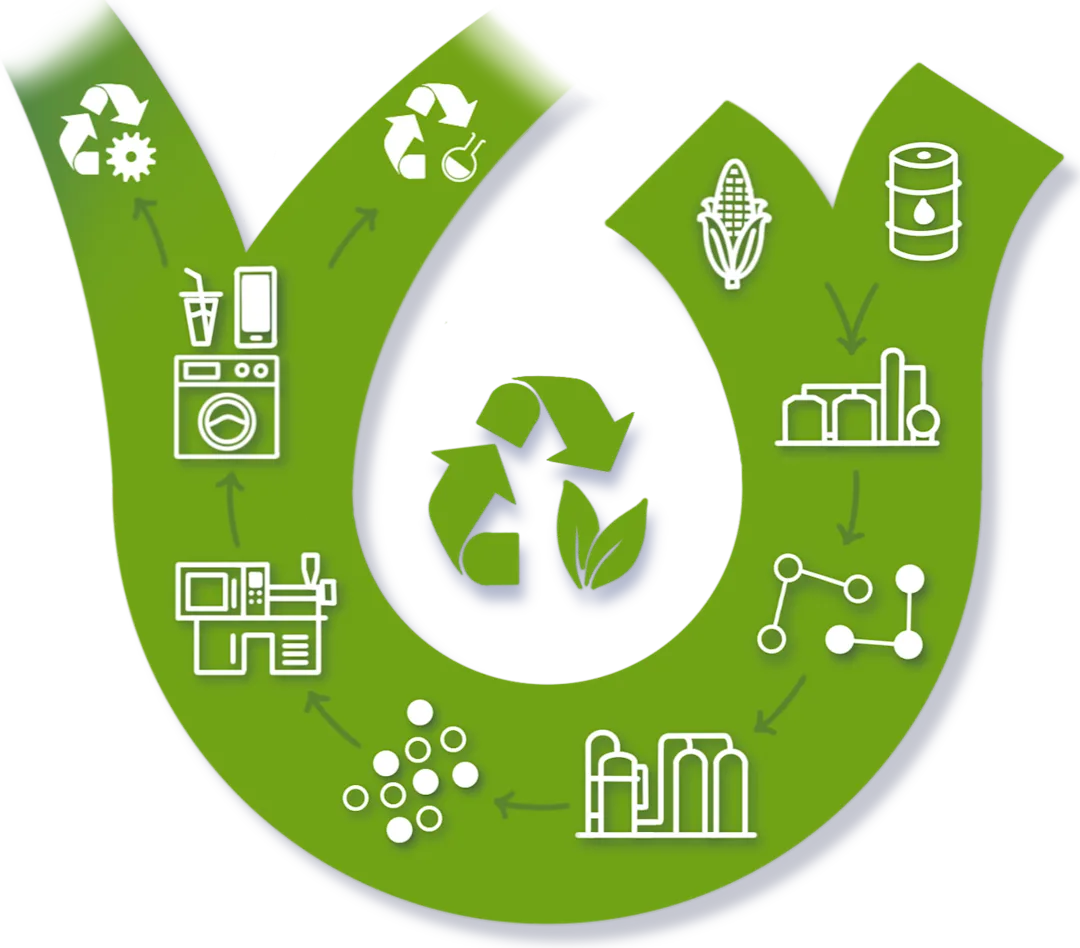Bio-Based Polymers
Bio-based polymers are those manufactured from renewable feedstocks. These feedstocks are raw ingredients sourced from sustainable and replenishable sources, rather than traditionally used fossil fuels. For example, tall oil and cooking oils that are by-products of the agricultural and catering industry.
The replacement of fossil-fuel based sources with renewable feedstocks supports the circular economy and results in polymers with a significant reduction in carbon footprint whilst retaining the quality of prime or virgin polymer.
Sustainable Solutions from Nature
Renewable feedstocks are sent to a chemical plant where they are converted to molecular building blocks for polymers e.g. bio-naptha.
Renewable feedstocks are those derived from renewable biological resources, rather than traditional materials derived from fossil fuels such as natural gas or crude oil. Example sources include:
- Starch from maize/corn or sugarcane
- Tall oil, a by-product of manufacturing paper from pine trees
- Organic waste from the food and catering industry
- Methane gas captured from compost manufacturing facilities
Renewable and traditional raw ingredients are combined, such as bio-naphtha from renewable sources with traditional naphtha, then repolymerised to make new material. This specific manufacturing process is known as bio-attribution, however, there are many other varieties of bio-based polymer.
The proportion of renewable material in the process is carefully tracked and documented throughout the supply chain (using an independent accreditation such as ISCC).
Why choose a bio-based polymer?

The inclusion of renewable feedstocks in the manufacture of polymers can help to reduce the carbon footprint of a final product from that of a product made from virgin plastic.

With the mass balance approach, bio-based feedstocks can be used in existing polymer manufacturing processes and provides prime level of quality for use in high-end, demanding applications.

Some biopolymers have the advantage of being biodegradable or compostable. This ability to break down in the natural environment can help to deliver nutrients to soil whilst supporting waste management and responsible disposal.
Varieties of Bio-Based Polymer
There are several varieties of bio-based polymer, each offering different sustainable benefits:
- Bio-Based Plastic - A bio-based plastic is made from renewable biomass sources such as starch from corn/rice/potatoes or sugar from sugar cane/sugar beets. Cellulose from trees/cotton can also be used as well as vegetable oils from seeds and much more.
- Bio-Attributed Plastic - This is a plastic made from a combination of bio- and traditional feedstocks. Typically using the mass-balance method to track and certify the level of renewable feedstock that has gone into making the polymer.
- Biodegradable & Compostable Plastics - If decomposition occurs through biological activity, a material can be called biodegradable. A special variant of this is compostable plastic. If there is enough oxygen available for the microbes, fully biodegradable materials leave nothing behind except CO2, water, minerals and possibly more slowly degrading biomass.












